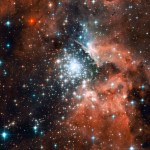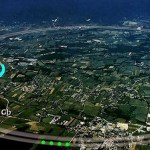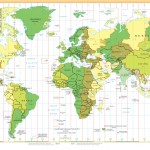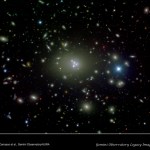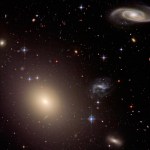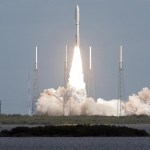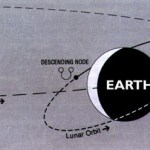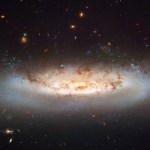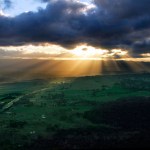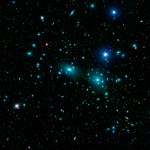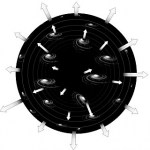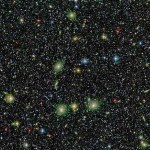Astronomy
"At the last dim horizon, we search among ghostly errors of observations for landmarks that are scarcely more substantial. The search will continue. The urge is older than history. It is not satisfied and it will not be oppressed." -Edwin Hubble
Given the relative peace of our night skies, combined with the vast distances from our Solar System to the nearest star, we don't often think about the cosmic catastrophes that took place in our past. But these catastrophes are the very things that gave rise to our Solar System in the first place!
Image credit: NASA, ESA and the Hubble Heritage (…
"Change, like sunshine, can be a friend or a foe, a blessing or a curse, a dawn or a dusk." -William Arthur Ward
Few things are as essential to our world as we know it as the primary source of our light, heat, and all the life that flourishes on Earth as the Sun itself.
Image credit: NASA / ESA / SOHO-EIT Consortium, retrieved from legacy.spitzer.caltech.edu.
And yet, there are two things that may strike you as very important when it comes to our Sun. One may be the fact that, at 150 million kilometers (93 million miles) distant, the Sun is so much closer to us than even the next closest…
"Don't cry because it's over. Smile because it happened." -Dr. Seuss
2011 has been an amazing year over here. After more than two hundred new posts this year here on Starts With A Bang, where we covered everything from the science of tiny snowflakes to the earliest, farthest and most spectacular galaxies in the Universe, I've finally gone through and compiled the top 10 posts of 2011! (And sadly, no, the BEST climate study and associated controversy did not make the cut.)
Feel free to take a look back -- or if you somehow missed one of these stories, a deep look for the first time -- at the…
"And you may find yourself in another part of the world.
And you may find yourself behind the wheel of a large automobile.
And you may find yourself in a beautiful house, with a beautiful wife.
And you may ask yourself, 'Well, how did I get here?'" -Talking Heads
What would you do if you woke up one day, and found yourself in completely unfamiliar surroundings? You don't know what day it is, what year it is, or even where you are.
Is there any way, without any other information, that you could figure out exactly where in the world you were?
Image credit: World Map from Theodora.com.
We…
"Just as I did some 25 years ago, my graduate student is right now using one of the NOAO telescopes, learning how to do observational astronomy... Closing down one of these observatories in the next few years would likely lead to long term problems with producing adequately prepared astronomers in the future, and they are as necessary to achieving the goals of our decadal reports as any multi-billion dollar facility." -Adam Stanford, UC Davis
Every week, I come to you so excited to tell you all about some amazing physics or astronomy story, whether it's something new that's just been…
"A farmer travelling with his load
Picked up a horseshoe on the road,
And nailed if fast to his barn door,
That luck might down upon him pour;
That every blessing known in life
Might crown his homestead and his wife,
And never any kind of harm
Descend upon his growing farm." -James Thomas Fields
One of the greatest joys the Hubble Space Telescope has given us is the ability to peer deeper into the distant Universe than ever before. Not just at the giant, luminous galaxies visible with smaller, ground-based telescopes, but at the great sea of galaxies billions of light years away.
Image…
"Continue to surprise those who would put you in a neat demographic. Be insistently curious." -Gordon Gee
Twenty years ago, our Solar System was the only one we knew of that we were certain had planets orbiting around a main-sequence star.
Image credit: retrieved from Universe-Review.ca.
Perhaps surprisingly, it wasn't until 1995 that the first Extra-Solar Planet (exoplanet) -- or planet orbiting a star outside of our Solar System -- was discovered. And when it was, it was nothing like the planets in our Solar System. In fact, most of the earliest exoplanets discovered were not only more…
"Life is not a miracle. It is a natural phenomenon, and can be expected to appear whenever there is a planet whose conditions duplicate those of the Earth."
-Harold Urey
One of the most exciting investigations going on right now in space is NASA's Kepler Mission, which is on the hunt for planets beyond our Solar System!
Image credit: Dana Berry / NASA / Kepler Mission.
From high above the Earth's atmosphere in outer space, Kepler points at a small region of our sky, sensitive to a remarkable 150,000 stars within our galaxy!
Image credit: NASA / Kepler, retrieved from the Astronomical…
"Every time you look up at the sky, every one of those points of light is a reminder that fusion power is extractable from hydrogen and other light elements, and it is an everyday reality throughout the Milky Way Galaxy." -Carl Sagan
(This post is coauthored by Dr. Peter Thieberger, Senior Physicist at Brookhaven National Laboratory.)
A cheap, clean, efficient and virtually limitless source of energy would be just what our world needs right about now. The cheap sources -- coal, oil, and gas -- are dirty, destructive, and limited, while the clean sources -- wind and solar -- are expensive and…
"Years of science fiction have produced a mindset that it is human destiny to expand from Earth, to the Moon, to Mars, to the stars." -Barney Oliver
Just five days ago, the newest rover sent to Mars, Curiosity, was successfully launched aboard an Atlas V rocket.
Image credit: NASA / Bill White, retrieved from gizmag.com.
But if you're anything like me, you can't just sit around and wait until its arrival in August of next year! After all my favorite rover is still rolling around on Mars after eight years, and has just uncovered something no other craft on Mars has seen before.
Image credit…
"One touch of nature makes the whole world kin." -William Shakespeare
In January of 2006, the Hubble Space Telescope -- equipped with the greatest telescope camera ever designed -- took this detailed picture of globular cluster NGC 1846.
Image credit: NASA and the Hubble Heritage Team, STScI/AURA, and P. Goudfrooij.
Like most globular clusters, this is a very tight, dense collection of perhaps a few hundred thousand stars, contained in a roughly spherical region just a few light years in size. Unlike most of the globular clusters we know, this one is not located within our own galaxy, but…
"Nations, like stars, are entitled to eclipse. All is well, provided the light returns and the eclipse does not become endless night. Dawn and resurrection are synonymous. The reappearance of the light is the same as the survival of the soul." -Victor Hugo
Everyone knows the Earth revolves around the Sun, which takes a year, and the Moon revolves around the Earth, which takes just under a month. So why, then, don't we have 12 solar eclipses and 12 lunar eclipses a year?
If you didn't know any better, you'd expect that each time the Moon passes between the Earth and Sun, its shadow would fall…
"We don't understand how a single star forms, yet we want to understand how 10 billion stars form." -Carlos Frenck
When we look out into the distant Universe, we're also looking back into the Universe's past. The farther away an object is, the longer it's taken its light to travel from it to our eyes. And each time we observe something farther away than anything we've seen before, we're looking farther back into the past -- closer to the Big Bang -- than ever before.
Image credit: NASA, ESA and A. Felid (STScI).
The earliest thing we've ever been able to see -- of course -- is the Cosmic…
"A constant struggle, a ceaseless battle to bring success from inhospitable surroundings, is the price of all great achievements." -Orison Swett Marden
One of the greatest assumptions we make in our study of the laws of nature is, well, that they're laws of nature, not particularly special to where or when we happen to be looking at them.
Image credit: NASA & ESA.
Whether we look on our home planet, within our own galaxy, at a relatively nearby galaxy (like NGC 4522, above), or at galaxies extremely far away (faintly visible in the background), we always tend to assume that the…
"They credited us with the birth of that sort of heavy metal thing. Well, if that's the case, there should be an immediate abortion." -Ginger Baker
As hard as it may be to believe, take a look outside. I don't mean a glance, I mean to take a real look. At all the things there are to see -- the rocks, trees, mountains, skies, clouds, Sun, water, and everything alive -- all of it.
Image credit: Fir0002/Flagstaffotos, under the GFDL.
Now ask yourself, "what's it made of?"
At a fundamental level -- like everything else you know of -- everything on Earth is made of atoms. Oxygen, Hydrogen,…
"The pages are still blank, but there is a miraculous feeling of the words being there, written in invisible ink and clamoring to become visible." -Vladimir Nabokov
The wonderful images we take of deep space -- from distant galaxies to all the stars, clusters, and nebulae within our own galaxy -- all have something in common.
Image credit: Wolfgang Brandner, Eva K. Grebel, You-Hua Chu, and NASA.
Light! More specifically, electromagnetic radiation. While this light isn't always in the visible portion of the spectrum, that's certainly the type of radiation we're most accustomed to. And that's…
By Dr. Gerry Harp, Senior Astrophysicist, Center for SETI Research, SETI Institute, and Gail Jacobs
Trained as a quantum mechanic, Dr. Gerry Harp was deeply interested in possibilities for using the multiple telescopes of the Allen Telescope Array to generate steerable "beams" on the sky -- beams that could be far smaller than any single antenna could produce. Such beams don't emit anything, but work in reverse by capturing only energy that comes from the sky in a certain direction. Gerry joined the SETI Institute in 2000, practically at the telescope's inception and uses the telescope for…
"The cave you fear to enter holds the treasure you seek." -Joseph Campbell
Space, as you know, is mostly empty, as the typical distance between galaxies far exceeds the size of the galaxies themselves.
But in a few select regions of the Universe, where the mass density is unusually above average, galaxies cluster together by the thousands. The closest huge cluster to us like this is the Coma Cluster, containing more galaxies than 95% of all known galaxy clusters.
Image credit: NASA / JPL-Caltech / L. Jenkins (GSFC).
One of the first thing you'll notice about these galaxies is, unlike our…
"The only reason for time is so that everything doesn't happen at once." -Albert Einstein
Now that you know how many galaxies are in our expanding Universe, you might be wondering about their speeds.
After all, since the Universe is expanding, that means that the farther away a galaxy is from us, the faster it's speeding away from us.
Graph credit: Michael Rowan-Robinson.
What's more than that, since the expansion itself is accelerating, galaxies speed away from us ever faster as time progresses.
It should come as no surprise, then, that galaxies that we see moving away from us at high…
"The human mind is not capable of grasping the Universe. We are like a little child entering a huge library. The walls are covered to the ceilings with books in many different tongues. The child knows that someone must have written these books. It does not know who or how. It does not understand the languages in which they are written. But the child notes a definite plan in the arrangement of the books---a mysterious order which it does not comprehend, but only dimly suspects."
-Albert Einstein
Earlier today, I had the pleasure of visiting a high school astronomy class via Skype, answering…
